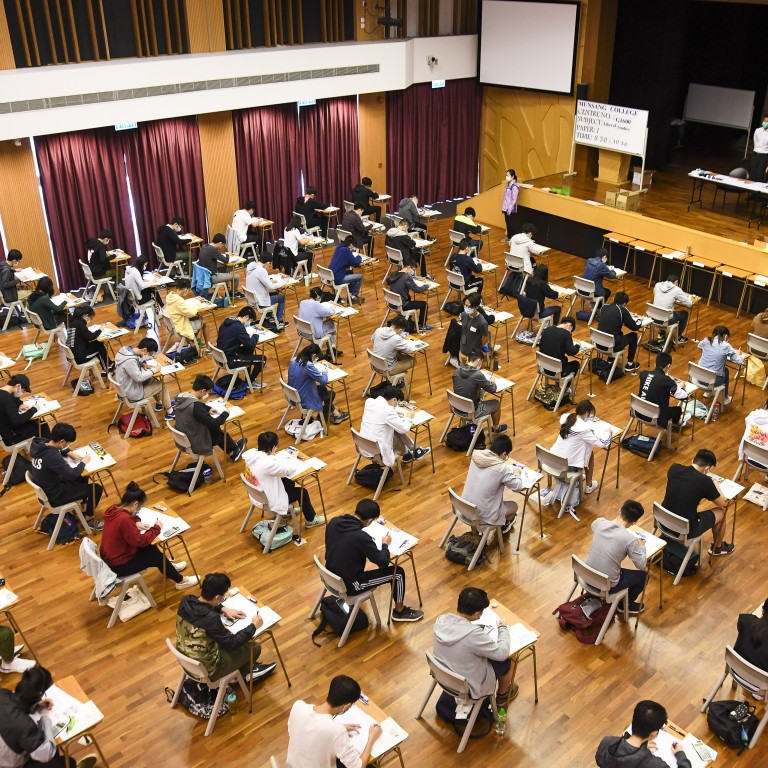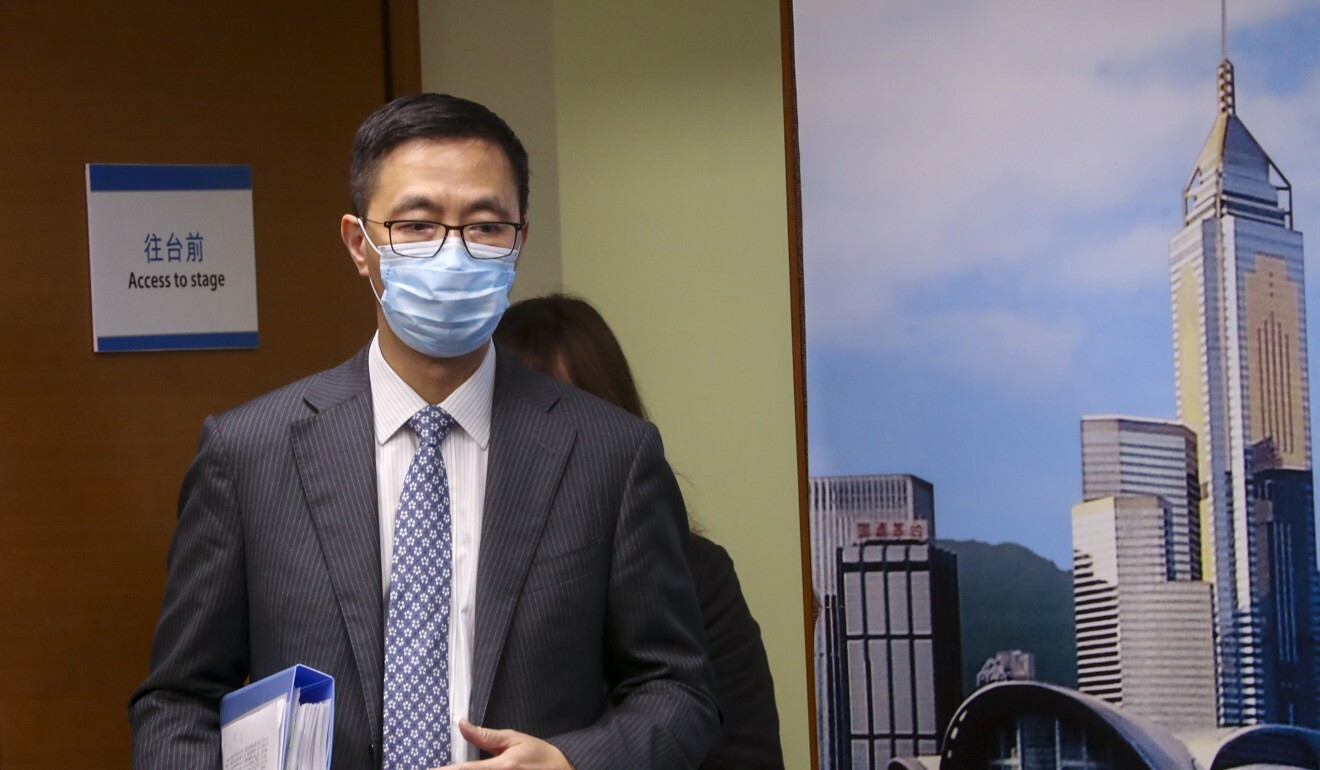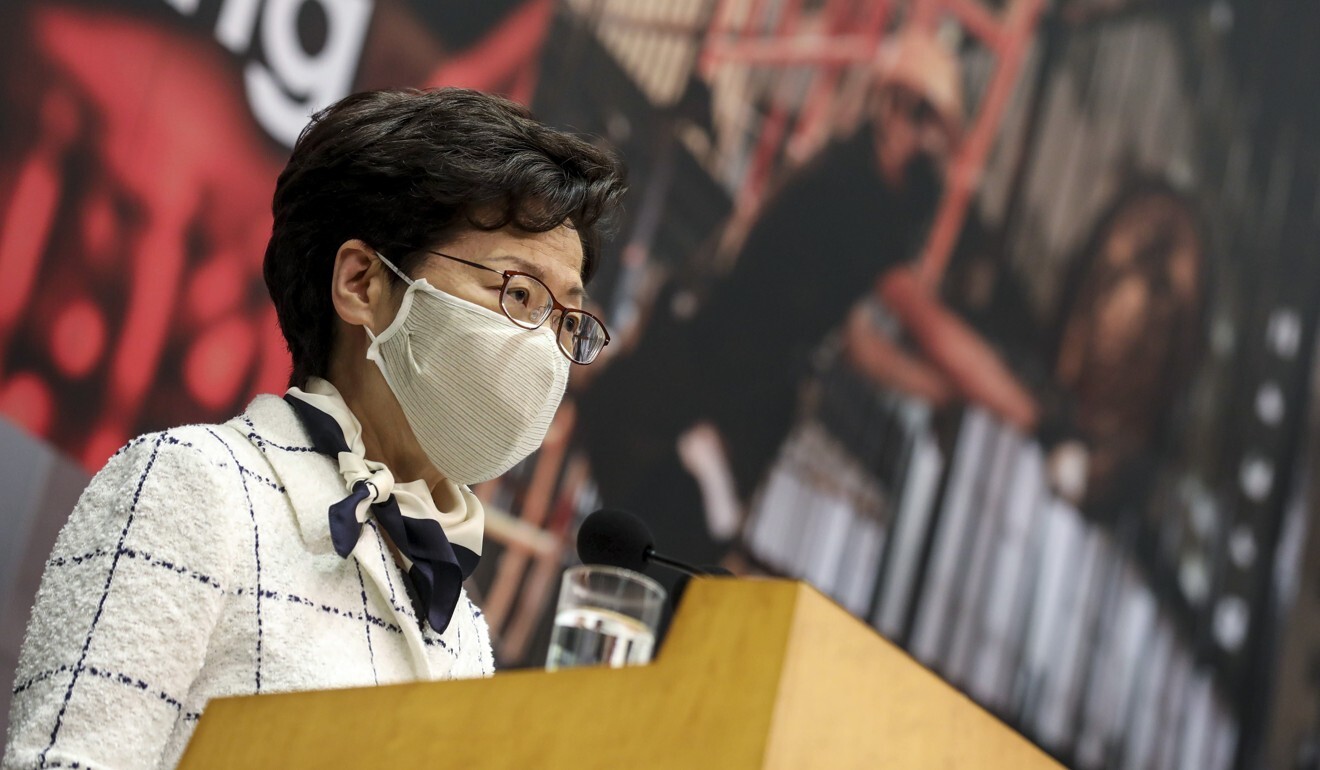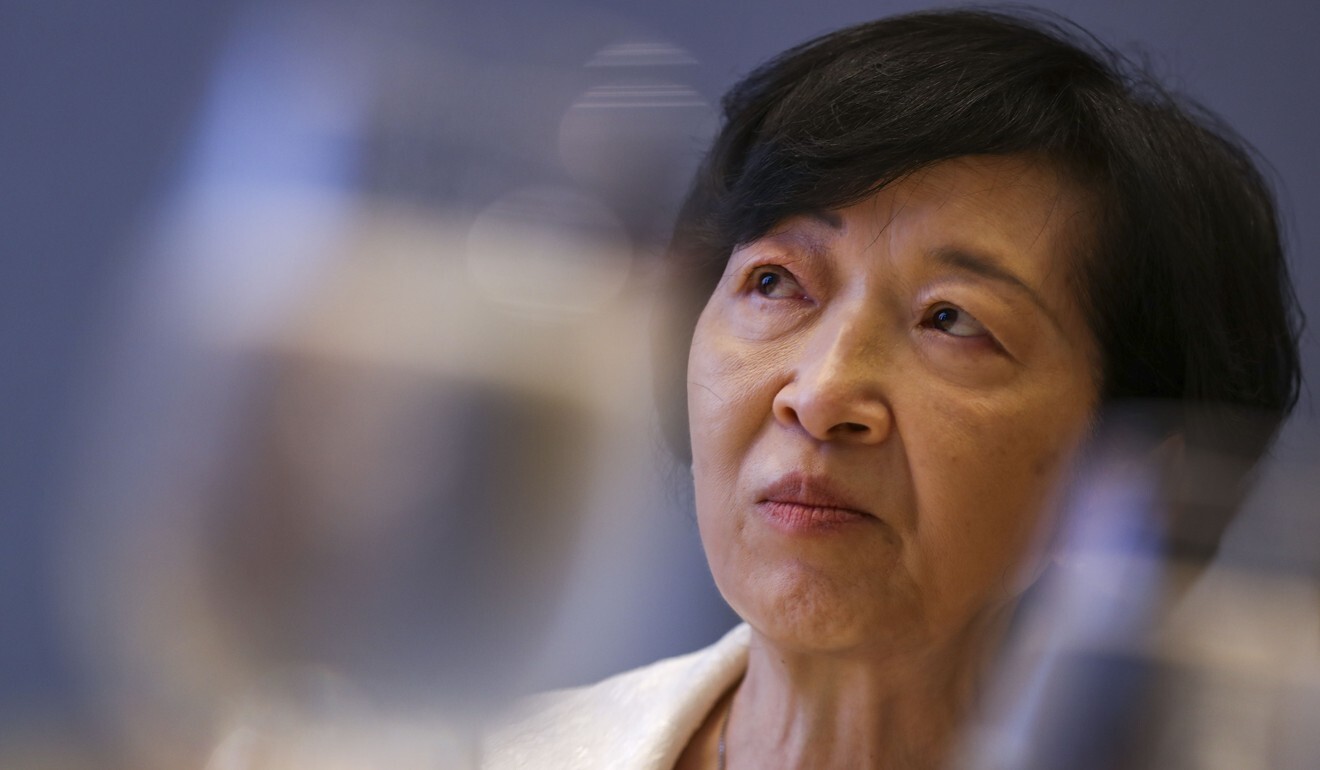
Hong Kong’s education under attack: outrage over history paper asking whether Japan did more good than harm to China during war years tip of the iceberg
- A university entrance exam question on pre-WWII Sinco-Japanese relations that sparked outrage is the latest controversy to roil the sector
- But the city’s failure to implement the national education curriculum in 2012 and growing anti-mainland sentiment linked to liberal studies have long been issues
On Thursday morning, 5,200 Hong Kong students sat their history paper for the Diploma of Secondary Education, the city’s main university entrance examination.
By Friday afternoon, a fuming Secretary for Education Kevin Yeung Yun-hung said the exams authority would be told to strike out the offending question and make the necessary adjustments in marking the paper.
How a history exam question stirred up controversy
As far as he was concerned, the exam presented a leading question accompanied by reading materials that were biased enough to leave some students thinking Japan might have done some good in the years leading up to and during World War II, when that was clearly not the case.
“The question deviates from objective facts,” Yeung said. Given Japan’s invasion of China, he said, the only answer to the question was that Japan only did harm but no good. “There is no room for discussion,” he declared.

An investigation is under way at the exams authority, and there will be more to come before the issue is settled.
But the storm over a history exam question is merely the tip of the iceberg as far as issues that plague Hong Kong schools are concerned.
It comes against the backdrop of the unhappiness of both the Hong Kong government and Beijing over the city’s failure to implement national education and the growing anti-mainland sentiment among young Hongkongers.
Hong Kong Education Bureau to strike out exam question on pre-WWII Sino-Japanese relations
In 2012, the government was forced to withdraw its plan to implement the national education curriculum that would emphasise a national identity, among other things. The proposal was abandoned after tens of thousands of protesters besieged government headquarters in Admiralty.
She said the government would announce this year how to handle the controversial liberal studies subject, which is compulsory for upper secondary students and has been blamed for promoting pro-independence sentiments among young people in an increasingly politicised environment.

‘POISONOUS’ QUESTION
On Thursday, events moved swiftly after the DSE candidates sat their history exam.
Pro-establishment politicians and the 35,000-strong Hong Kong Federation of Education Workers were the first to criticise the question, saying it played down the impact and horrors of the Japanese occupation of China. The two countries were at war between 1937 and 1945.
About 9pm, the Office of the Commissioner of the Foreign Ministry in Hong Kong made a Facebook post, in the form of a report citing the federation’s statement.
Its post was headlined: “‘Japan did more good than harm to China in 1900-1945?’ Hong Kong’s education system cannot become a ‘chicken coop without a flap’!”
Hong Kong protests: city leader Carrie Lam shelves independent review into what caused unrest
The “chicken coop” referred to similar remarks on education in the city by Chief Executive Lam.
Next came the Education Bureau’s statement, lashing out at the exams authority for “seriously hurting the feelings” of Chinese people who suffered under Japanese occupation, and demanding a review of how exam questions are set.
On Friday night, after education secretary Yeung expressed anger at the offending question, state media agency Xinhua published a strongly worded commentary, saying that if the “poisonous” question was not struck out, the “rage of all Chinese sons and daughters would not be able to be settled”.
The commentary said nearly 23 years after the handover, Hong Kong had yet to establish a new education system that was in line with “one country, two systems”.
“The Hong Kong education system is a place where the worst elements of society are assembled and students are being poisoned,” it said.
Xinhua also criticised education sector lawmaker Ip Kin-yuen for defending the people involved in setting the exam question, and said Ip was not qualified to represent the sector and did not qualify as a teacher.
Ip was the second pan-democratic lawmaker to be attacked by mainland authorities and state media, after legislator Dennis Kwok of the opposition Civic Party – who had been presiding over meetings of the Legislative Council’s house committee since October – was accused of using delaying tactics to keep legislation from moving forward.
Mainland netizens also attacked the question, with some demands for heads to roll.
Dr Lau Chi-pang, chairman of the DSE world history subject committee and a professor at Lingnan University’s department of history, told the Post the question was set unprofessionally and inappropriately.
“The two accompanying reading materials point in the same direction of Japan offering help to China in the early 20th century,” he said.
The first was a 1905 article by Ume Kenjiro, a former head of Hosei University in Tokyo, describing plans to welcome Chinese students to Japan to study law and politics, in order to bring about reform during the Qing dynasty.
Hong Kong education officials defend controversial liberal studies subject
The other cited excerpts of a letter from revolutionary leader Huang Xing to Japanese politician Inoue Kaoru seeking financial help, as well as a 1912 contract detailing support provided by Japanese business conglomerate Mitsui to the provisional government of the Republic of China.
Lau said: “This could easily lead some candidates to conclude that Japan ‘did more good than harm to China’ between 1900 and 1945.”
Executive councillor Fanny Law Fan Chiu-fun, a former permanent secretary for education, said the question was framed in an unacceptable and unprofessional way, and the accompanying readings were incomplete and misleading.
“I believe there is consensus in the community that the Examinations and Assessment Authority has made a grave mistake which seriously undermines its credibility,” she said.

CONTROVERSIAL REFORMS
Aside from flaws in the way the question was set, academics said the controversy might have its roots in Hong Kong’s education reforms launched in 2000.
When the government unveiled its education blueprint in 2000, then Education Commission chairman Antony Leung Kam-chung emphasised that students should be given more room to develop critical thinking, and called for an end to unnecessary drilling or rote learning. The commission is the government’s top think-tank on education.
As a result, teaching methods for world history shifted from memorisation of facts to critical thinking.
According to the senior secondary world history curriculum, students are expected to master the skills to distinguish fact from opinion and detect biased viewpoints and unsubstantiated arguments.
Hong Kong protests: no systemic problem with policing, but room to improve, watchdog concludes
Liu Shuyong, senior research fellow at Lingnan University’s Hong Kong and South China historical research programme, said he had noted that in recent years secondary schools had begun adopting university-level teaching methods that emphasised critical thinking and analytical skills.
“At secondary school, teachers should focus on providing students with elementary and background knowledge. The training of analytical capability and critical thinking should be left to universities,” Liu said.
“Some secondary school students may not have sufficient knowledge to make proper judgments. There could be problems if some teachers have biased political stances.”
In 2009, liberal studies was introduced as a compulsory subject for all senior secondary students hoping to enter a Hong Kong university.
Hong Kong leader Carrie Lam’s warning to schools on ‘fallacious arguments’ sparks anger
Lau Siu-kai, vice-chairman of the semi-official Chinese Association of Hong Kong and Macau Studies, said the situation today is that education has emerged as a crucial political issue.
He said the education sector had become an opposition stronghold and many young people who took part in anti-government protests in recent years were apparently influenced by pro-democracy teachers.
“The Hong Kong government is now under tremendous pressure from the central government and the Hong Kong community to fix the problems with the city’s education system,” he said.
“I expect the Hong Kong government to take tough measures in the years ahead to tackle problems regarding curriculum design, the vetting of textbooks and public examinations.”
Help us understand what you are interested in so that we can improve SCMP and provide a better experience for you. We would like to invite you to take this five-minute survey on how you engage with SCMP and the news.

